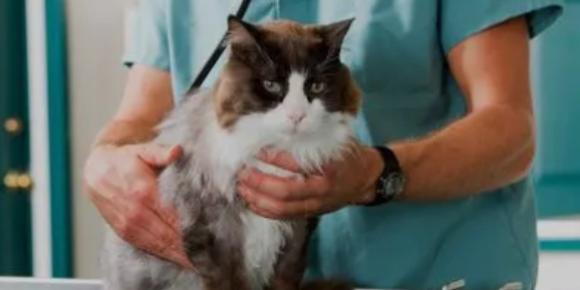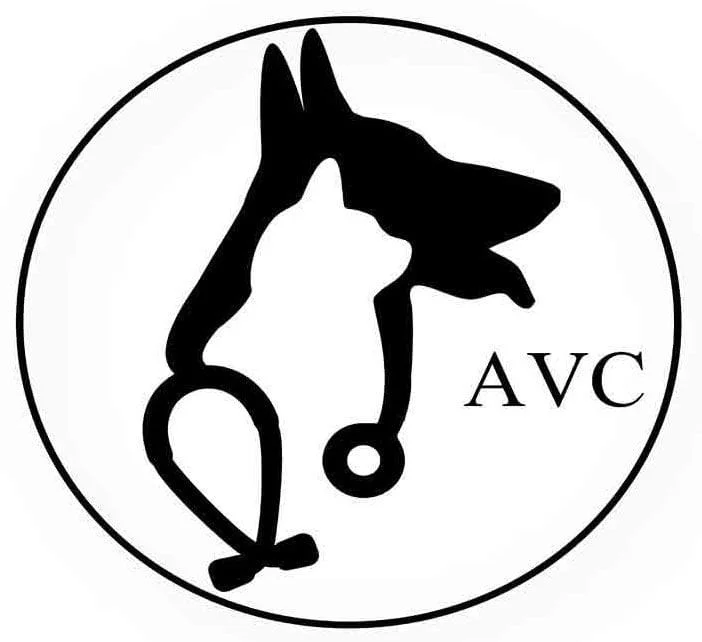5039 Pacific Ave , Tacoma, WA 98408
Location
Mast Cell Tumors in Cats

- posted: Oct. 11, 2024
Mast cell tumors are common and can cause your cat discomfort, which may prevent him or her from being active. At Avenue Veterinary Clinic in Tacoma, WA, we provide various treatments, including surgery, to reduce any uncomfortable symptoms and improve your feline’s overall health. Continue reading to learn more about mast cell tumors in cats!
Understanding Mast Cell Tumors
Mast cell tumors (MCTs) in cats are a common form of skin cancer that can vary significantly in their severity and treatment options. These tumors originate from mast cells, which are immune cells found throughout the body, particularly in the skin. MCTs can appear as small nodules or growths on the skin's surface and may range from benign to malignant in nature.
Recognizing the Symptoms
The symptoms of MCTs in cats vary depending on the location of the tumor. Skin MCTs typically appear as raised, firm, hairless bumps or lumps. These may or may not be itchy for the cat. Internal MCTs can cause a variety of symptoms, including vomiting, diarrhea, weight loss, lethargy, and decreased appetite.
Diagnosis and Treatment
Diagnosing MCTs typically involves a physical examination, fine needle aspiration, and biopsy to determine the tumor's grade and potential spread. Treatment options depend on the tumor's location, size, and grade. In many cases, surgical removal is recommended to completely excise the tumor and prevent further growth or spread. Pet surgery for MCTs helps remove the tumor with clear margins to reduce the risk of recurrence.
Post-Surgery Care
After surgery, post-operative care is crucial for your cat's recovery. Our veterinarians may prescribe medications to manage pain, prevent infection, and promote healing. It's important to monitor your feline closely during the recovery period and follow our vets’ instructions for wound care and administering medication. Regular follow-up visits may be necessary to monitor your cat's progress and detect any signs of tumor recurrence early.
Contact Us for an Appointment Today
For expert veterinary care and compassionate treatment of mast cell tumors in cats, contact Avenue Veterinary Clinic in Tacoma, WA. Our team is dedicated to providing the attention and support your furry companion needs during treatment. Call our office at (253) 472-3359 today to schedule an appointment. Your cat's health is our priority, and we're here to help every step of the way.

- posted: Oct. 11, 2024
Mast cell tumors are common and can cause your cat discomfort, which may prevent him or her from being active. At Avenue Veterinary Clinic in Tacoma, WA, we provide various treatments, including surgery, to reduce any uncomfortable symptoms and improve your feline’s overall health. Continue reading to learn more about mast cell tumors in cats!
Understanding Mast Cell Tumors
Mast cell tumors (MCTs) in cats are a common form of skin cancer that can vary significantly in their severity and treatment options. These tumors originate from mast cells, which are immune cells found throughout the body, particularly in the skin. MCTs can appear as small nodules or growths on the skin's surface and may range from benign to malignant in nature.
Recognizing the Symptoms
The symptoms of MCTs in cats vary depending on the location of the tumor. Skin MCTs typically appear as raised, firm, hairless bumps or lumps. These may or may not be itchy for the cat. Internal MCTs can cause a variety of symptoms, including vomiting, diarrhea, weight loss, lethargy, and decreased appetite.
Diagnosis and Treatment
Diagnosing MCTs typically involves a physical examination, fine needle aspiration, and biopsy to determine the tumor's grade and potential spread. Treatment options depend on the tumor's location, size, and grade. In many cases, surgical removal is recommended to completely excise the tumor and prevent further growth or spread. Pet surgery for MCTs helps remove the tumor with clear margins to reduce the risk of recurrence.
Post-Surgery Care
After surgery, post-operative care is crucial for your cat's recovery. Our veterinarians may prescribe medications to manage pain, prevent infection, and promote healing. It's important to monitor your feline closely during the recovery period and follow our vets’ instructions for wound care and administering medication. Regular follow-up visits may be necessary to monitor your cat's progress and detect any signs of tumor recurrence early.
Contact Us for an Appointment Today
For expert veterinary care and compassionate treatment of mast cell tumors in cats, contact Avenue Veterinary Clinic in Tacoma, WA. Our team is dedicated to providing the attention and support your furry companion needs during treatment. Call our office at (253) 472-3359 today to schedule an appointment. Your cat's health is our priority, and we're here to help every step of the way.

